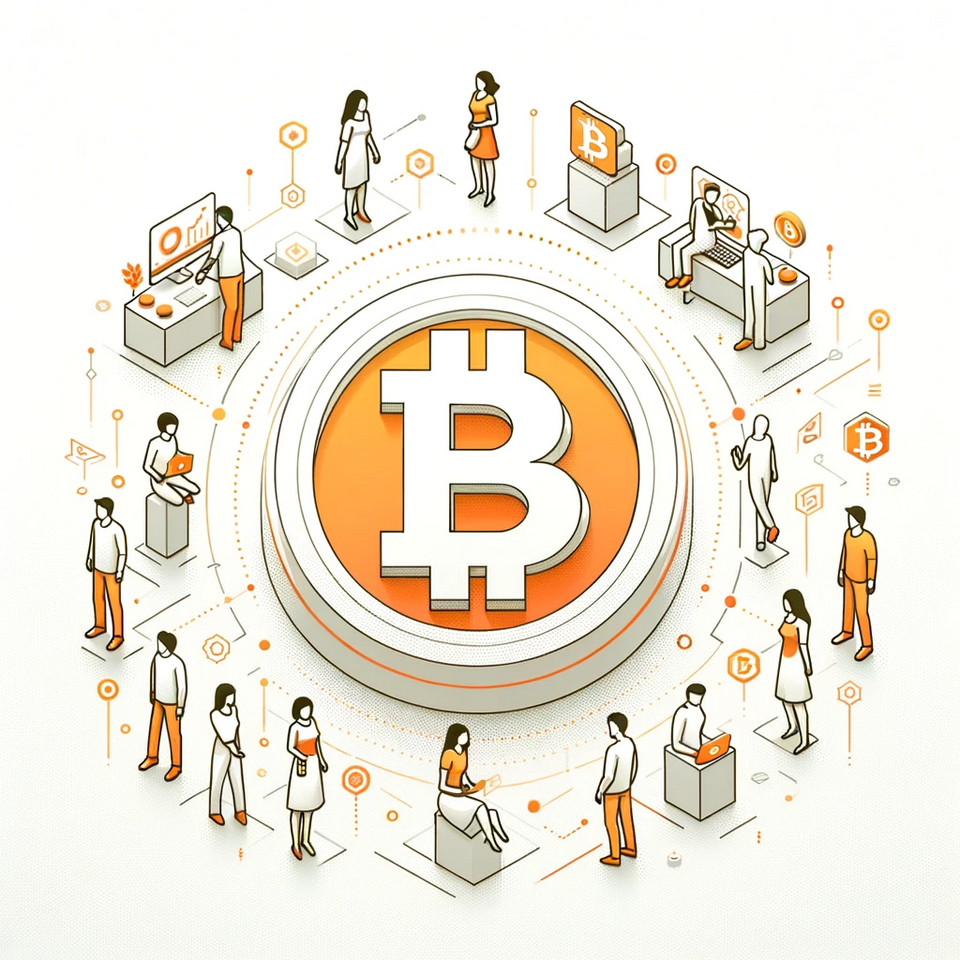Changing World Order: Rise of Bitcoin

In Ray Dalio's "The Changing World Order: Why Nations Succeed and Fail" he intricately maps out the cyclical nature of global power, emphasizing the rise and fall of nations and their currencies. While Dalio doesn't specifically mention cryptocurrencies, his concepts intriguingly intersect with the world of Bitcoin. Dalio highlights how dominant currencies fuel empires, a role Bitcoin could potentially usurp.
Bitcoin, with its fixed supply and decentralization, stands as a stark contrast to traditional fiat currencies, offering a stable, globally accessible, and non-manipulable financial alternative.
This aligns with Dalio's vision of an evolving world order, where Bitcoin could signify a major shift in economic power dynamics, moving away from traditional fiat-based empires.
Bitcoin could be a possible end to the cycle of fiat dominance, proposing a new era of global finance, more equitable and less volatile.
In a world rocked by financial instability, imagine being born into an economy where your currency's value erodes like sand in a storm. This chaotic landscape, sadly a reality for many, has sparked an unprecedented digital uprising led by Bitcoin. No longer just lines of code, Bitcoin has emerged as a beacon of hope in nations like Venezuela, Nigeria, and Argentina, where life savings are decimated by hyperinflation and economic turmoil.
As El Salvador bravely adopts Bitcoin as legal tender, it signals the dawn of a new era. Bitcoin transcends being merely a digital asset; it symbolizes resilience and resistance against the unpredictability of traditional money. It's a digital revolution, redefining the very concept of value and trust in an economy.
Fast forward to 2030, and the world witnesses a remarkable transformation. Bitcoin is now the reserve currency, a cornerstone of daily life across the globe. In the vibrant markets of New Delhi, the familiar chime of rupees is replaced by the silent flicker of smartphones, signaling Lightning payments. Over in Paris, a young artist along the Seine river exchanges her art for Bitcoin, connecting with a global audience instantaneously. Meanwhile, in the remote villages of Kenya, farmers bypass traditional banking barriers, trading their produce with buyers from far-off lands, facilitated by the universal language of Bitcoin.
The bustling city of Tokyo is not left behind. Here, a busy professional hops on the high-speed train, her fare seamlessly paid in Bitcoin via a Lightning transaction, faster than she can find her seat. Across the ocean in New York, a street musician's guitar case features a QR code, collecting tips from a worldwide audience, each transaction a testament to the borderless nature of this new financial era.
These micro-transactions, once hindered by fees and delays, are now swift and almost free. Money moves silently, yet powerfully, like a whisper across borders, breaking down barriers and empowering those once excluded from the traditional banking system.
This isn't merely the future of money; it's the advent of a new era of global connectivity, powered by Bitcoin and illuminated by the revolutionary Lightning Network. It's a world where financial inclusion is not just a dream but a tangible, everyday reality.
If you have a vivid imagination, you might find this video intriguing.
Member discussion